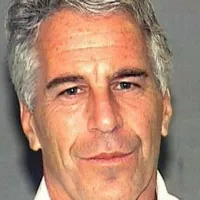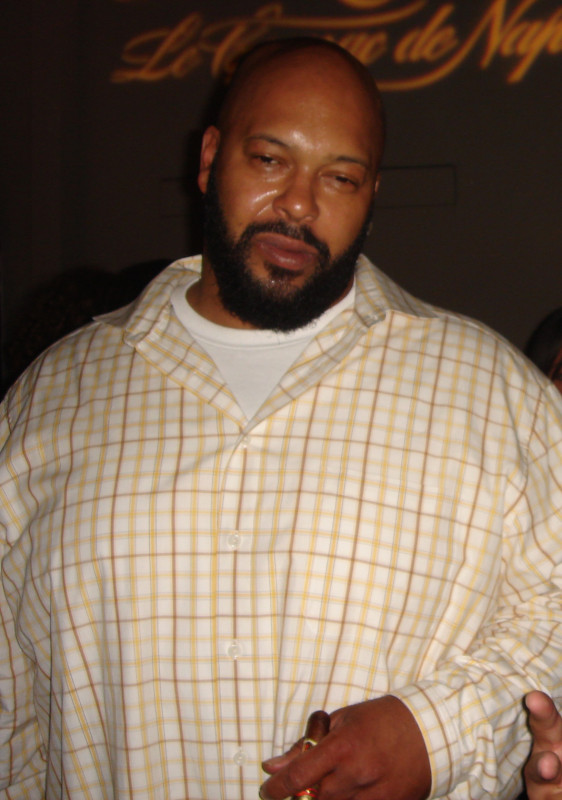Steven Pinker is a Canadian-American cognitive psychologist, psycholinguist, and popular science author. He is known for his advocacy of evolutionary psychology and the computational theory of mind. Pinker's work often explores the intersection of language, cognition, and human nature, and he is considered a prominent public intellectual known for engaging in debates on a wide range of topics.
15 hours ago : Steven Pinker Criticizes Harvard, Sparks Debate on Legitimacy and Derangement Syndrome.
Steven Pinker's critique of Harvard University ignited a controversy, questioning its legitimacy and causing 'derangement syndrome'. His views sparked replies and fueled debate about Harvard's current state and future direction within academia and broader society.
1918: Publication of The Elements of Style
In 1918, William Strunk wrote "The Elements of Style".
September 18, 1954: Steven Pinker's Birth
On September 18, 1954, Steven Arthur Pinker was born. He is a Canadian-American cognitive psychologist, psycholinguist, popular science author, and public intellectual.
1954: Birth in Montreal
In 1954, Steven Pinker was born in Montreal, Quebec, to a middle-class secular Jewish family in an English-speaking community.
1958: Inspiration from Words and Things
In 1958, Brown's book "Words and Things" was published. Pinker stated that it was one of the inspirations for The Language Instinct.
1973: Graduation from Dawson College
In 1973, Steven Pinker graduated from Dawson College.
1976: Graduation from McGill University
In 1976, Steven Pinker graduated from McGill University with a Bachelor of Arts in psychology.
1979: PhD from Harvard University
In 1979, Steven Pinker received a PhD in experimental psychology from Harvard University.
1980: Marriage to Nancy Etcoff
In 1980, Steven Pinker married Nancy Etcoff.
1982: Began Teaching at MIT
In 1982, Steven Pinker began teaching at the Department of Brain and Cognitive Sciences at MIT.
1984: Publication of Language Learnability and Language Development
In 1984, Steven Pinker published "Language Learnability and Language Development", outlining a theory of how children acquire the words and grammatical structures of their mother tongue.
1984: Early Career Award from the American Psychological Association
In 1984, Steven Pinker received the Early Career Award from the American Psychological Association.
1985: Co-Director of the Center for Cognitive Science
In 1985, Steven Pinker became the co-director of the Center for Cognitive Science at MIT.
1986: Boyd McCandless Award from the American Psychological Association
In 1986, Steven Pinker received the Boyd McCandless Award from the American Psychological Association.
1988: Critique of Connectionist Model Published
In 1988, Steven Pinker and Alan Prince published a critique of a connectionist model of the acquisition of the past tense, followed by a series of studies of how people use and acquire the past tense.
1989: Critique of Connectionist Model
In 1989, Steven Pinker and Alan Prince published work that critiqued the connectionist model regarding children's acquisition of the past tense of English verbs. They posited that children use default rules, such as adding -ed to make regular forms, sometimes in error, but must learn irregular forms one by one.
1989: Publication of Learnability and Cognition
In 1989, Steven Pinker published "Learnability and Cognition: The Acquisition of Argument Structure", focusing on how children use different verbs in appropriate sentences.
1990: Publication with Paul Bloom on Language Evolution
In 1990, Steven Pinker, with Paul Bloom, published a paper arguing that the human language faculty must have evolved through natural selection.
1992: Divorce from Nancy Etcoff
In 1992, Steven Pinker and Nancy Etcoff divorced.
1993: Troland Research Award from the National Academy of Sciences
In 1993, Steven Pinker received the Troland Research Award from the National Academy of Sciences.
1994: Publication of The Language Instinct
In 1994, Steven Pinker authored "The Language Instinct". This book describes aspects of psycholinguistics and cognitive science, and includes accounts of his own research, positing that language is an innate behavior shaped by natural selection and adapted to our communication needs.
1994: Director of the Center for Cognitive Neuroscience
In 1994, Steven Pinker became the director of the Center for Cognitive Neuroscience at MIT.
1995: Second Marriage
In 1995, Steven Pinker married for the second time and later divorced.
1995: Sabbatical at UC Santa Barbara
In 1995, Steven Pinker took a one-year sabbatical at the University of California, Santa Barbara.
1996: Igor Aleksander praises The Language Instinct
In 1996, machine intelligence researcher Igor Aleksander praised Steven Pinker's "The Language Instinct", calling it excellent and arguing that Pinker's claim for innatism is relatively soft.
1997: Publication of Educating Eve: The 'Language Instinct' Debate
In 1997, Geoffrey Sampson published "Educating Eve: The 'Language Instinct' Debate", arguing against the reality of Pinker's proposed language instinct and the claim that grammar is innate and genetically based.
1997: Publication of How the Mind Works
In 1997, Steven Pinker authored "How the Mind Works". This book describes aspects of psycholinguistics and cognitive science, and includes accounts of his own research, positing that language is an innate behavior shaped by natural selection and adapted to our communication needs.
1999: Publication of Words and Rules: The Ingredients of Language
In 1999, Steven Pinker published "Words and Rules: The Ingredients of Language", arguing that regular and irregular language phenomena result from computation and memory lookup.
1999: Golden Plate Award of the American Academy of Achievement
In 1999, Steven Pinker received the Golden Plate Award of the American Academy of Achievement.
1999: End of Directorship of Center for Cognitive Neuroscience
In 1999, Steven Pinker's tenure as the director of the Center for Cognitive Neuroscience at MIT ended.
2000: Publication of Words and Rules
In 2000, Steven Pinker authored "Words and Rules". This book describes aspects of psycholinguistics and cognitive science, and includes accounts of his own research, positing that language is an innate behavior shaped by natural selection and adapted to our communication needs.
February 2001: Nomination to the Luxuriant Flowing Hair Club for Scientists
In February 2001, Steven Pinker was nominated as the first member of the Luxuriant Flowing Hair Club for Scientists (LFHCfS).
2002: Publication of The Blank Slate
In 2002, Steven Pinker authored "The Blank Slate". This book describes aspects of psycholinguistics and cognitive science, and includes accounts of his own research, positing that language is an innate behavior shaped by natural selection and adapted to our communication needs.
2003: Joined Harvard as Professor
In 2003, Steven Pinker began serving as the Johnstone Family Professor of Psychology at Harvard.
2004: Henry Dale Prize from the Royal Institution of Great Britain
In 2004, Steven Pinker received the Henry Dale Prize from the Royal Institution of Great Britain.
2004: Named One of Time's 100 Most Influential People
In 2004, Steven Pinker was named in Time's "The 100 Most Influential People in the World Today".
January 2005: Defense of Lawrence Summers' comments on gender and science
In January 2005, Steven Pinker defended Lawrence Summers' comments suggesting that differences in aptitude might contribute to gender gaps in mathematics and science.
2005: Named a Top 100 Global Thinker by Foreign Policy
In 2005, Steven Pinker was named in Foreign Policy's list of "Top 100 Global Thinkers".
2005: Named one of Prospect and Foreign Policy's top public intellectuals
In 2005, Steven Pinker was named one of Prospect and Foreign Policy's 100 top public intellectuals.
May 13, 2006: Humanist of the Year award from the American Humanist Association
On May 13, 2006, Steven Pinker received the American Humanist Association's Humanist of the Year award.
2006: Provided Interpretation of Federal Law in Epstein Case
In 2006, Steven Pinker provided his interpretation of a federal law pertaining to the enticement of minors into illegal sex acts via the internet to Alan Dershowitz, Jeffrey Epstein's defense attorney, which Dershowitz included in a letter to the court.
2007: Publication of The Stuff of Thought
In 2007, Steven Pinker authored "The Stuff of Thought". This book describes aspects of psycholinguistics and cognitive science, and includes accounts of his own research, positing that language is an innate behavior shaped by natural selection and adapted to our communication needs.
2007: Marriage to Rebecca Goldstein
In 2007, Steven Pinker married the novelist and philosopher Rebecca Goldstein.
2007: Critique of whole language reading instruction techniques
In 2007, in the reprinted edition of "The Language Instinct", Steven Pinker critiqued "whole language" reading instruction techniques, arguing against the idea that reading is a naturally developing instinct.
2008: Chaired the Usage Panel of the American Heritage Dictionary
From 2008, Steven Pinker chaired the Usage Panel of the American Heritage Dictionary.
2008: Held Title of Harvard College Professor
In 2008, Steven Pinker held the title of Harvard College Professor in recognition of his dedication to teaching.
2008: Named a Top 100 Global Thinker by Foreign Policy and Chair of Usage Panel
In 2008, Steven Pinker was named in Foreign Policy's list of "Top 100 Global Thinkers". Also, he became the chair of the Usage Panel of the American Heritage Dictionary.
2008: Named one of Prospect and Foreign Policy's top public intellectuals
In 2008, Steven Pinker was named one of Prospect and Foreign Policy's 100 top public intellectuals.
January 2009: Article on the Personal Genome Project
In January 2009, Steven Pinker wrote an article for The New York Times about the Personal Genome Project and its potential impact on understanding human nature.
November 2009: Mixed review of Malcolm Gladwell's essays
In November 2009, Steven Pinker wrote a mixed review of Malcolm Gladwell's essays for The New York Times, criticizing his analytical methods.
2010: George Miller Prize from the Cognitive Neuroscience Society
In 2010, Steven Pinker received the George Miller Prize from the Cognitive Neuroscience Society.
2010: Named one of Foreign Policy's top global thinkers
In 2010, Steven Pinker was named by Foreign Policy to its list of top global thinkers.
2010: Named a Top 100 Global Thinker by Foreign Policy
In 2010, Steven Pinker was named in Foreign Policy's list of "Top 100 Global Thinkers".
2010: Publication of The Better Angels of Our Nature
In 2010, Steven Pinker's book "The Better Angels of Our Nature" was published, positing that violence in human societies has generally declined over time and identifies six major trends and five historical forces of this decline.
2011: Publication of The Better Angels of Our Nature
In 2011, Steven Pinker published "The Better Angels of Our Nature", arguing that violence has decreased over time due to factors counteracting violent inclinations.
2011: Named one of Foreign Policy's top global thinkers
In 2011, Steven Pinker was named by Foreign Policy to its list of top global thinkers.
2011: Named a Top 100 Global Thinker by Foreign Policy
In 2011, Steven Pinker was named in Foreign Policy's list of "Top 100 Global Thinkers".
2011: Wrote the essay on usage for the fifth edition of the American Heritage Dictionary
In 2011, Steven Pinker wrote the essay on usage for the fifth edition of the American Heritage Dictionary.
2013: Included in Prospect Magazine's Top 10 World Thinkers
In 2013, Steven Pinker was included in Prospect Magazine's top 10 "World Thinkers". He also delivered the Gifford Lectures at the University of Edinburgh.
2013: End of Title of Harvard College Professor
In 2013, Steven Pinker's tenure as Harvard College Professor ended.
2014: Publication of The Sense of Style
In 2014, Steven Pinker authored "The Sense of Style", a general language-oriented style guide.
September 2015: Critical review of Pinker's explanations for violence and warfare
In September 2015, Helga Vierich and Cathryn Townsend wrote a critical review of Steven Pinker's "civilizational" explanations for patterns of human violence and warfare in response to a lecture he gave at Cambridge University.
2015: Challenges to Linguistic Nativist Views
By 2015, the linguistic nativist views of Steven Pinker and Noam Chomsky had a number of challenges on the grounds that they had incorrect core assumptions and were inconsistent with research evidence from psycholinguistics and child language acquisition.
2016: Discussion of epigenetics in The Blank Slate
In 2016, Steven Pinker discussed new developments in epigenetics and gene-environment interactions in the afterword to his book, "The Blank Slate".
2016: Elected to the National Academy of Sciences
In 2016, Steven Pinker was elected to the National Academy of Sciences.
2018: Publication of Enlightenment Now
In 2018, Steven Pinker published "Enlightenment Now", arguing that the human condition has generally improved over recent history because of reason, science, and humanism.
2018: Publication of Enlightenment Now and debate with Homi Bhabha
In 2018, Steven Pinker published "Enlightenment Now", defending Enlightenment rationality and subsequently debated Homi Bhabha, who argued that Enlightenment philosophy had immoral consequences.
2018: End of Chairmanship of Usage Panel
In 2018, Steven Pinker's tenure as the chair of the Usage Panel of the American Heritage Dictionary came to an end, after serving in the role since 2008.
2018: Chaired the Usage Panel of the American Heritage Dictionary
Until 2018, Steven Pinker chaired the Usage Panel of the American Heritage Dictionary.
2019: Criticism from Nathan Robinson in Current Affairs
In 2019, Nathan Robinson criticized Steven Pinker in Current Affairs, accusing him of misrepresenting arguments against his work.
2019: Statements Regarding Involvement in Epstein Case
In 2019, Steven Pinker stated he was unaware of the nature of the charges against Jeffrey Epstein and regrets writing the letter for Alan Dershowitz. He also said he could never stand Epstein and tried to keep his distance.
2020: Open letter requesting removal from LSA Fellows list
In 2020, an open letter to the Linguistic Society of America requested Steven Pinker's removal from its list of LSA Fellows, accusing him of silencing victims of racism and sexism. The request was declined.
2021: Publication of Rationality: What It Is, Why It Seems Scarce, Why It Matters
In 2021, Steven Pinker released "Rationality: What It Is, Why It Seems Scarce, Why It Matters", which discusses the nature and importance of reason.
2022: BBVA Foundation Frontiers of Knowledge Award
In 2022, Steven Pinker was awarded the BBVA Foundation Frontiers of Knowledge Award in the category of "Humanities and Social Sciences".
December 2024: Resignation from Freedom from Religion Foundation
In December 2024, Steven Pinker resigned from the board of honorary members of the Freedom from Religion Foundation due to disagreements over the Foundation's approach to defining gender.
May 23, 2025: Guest essay in The New York Times
On May 23, 2025, Steven Pinker wrote a guest essay for The New York Times titled "Harvard Derangement Syndrome" in response to the Trump administration's decision to halt Harvard University's ability to enroll international students.
Mentioned in this timeline

Jeffrey Epstein was an American financier and convicted sex offender...
California is the most populous US state located on the...

A dictionary is a reference work containing lexemes from one...
Canada is a North American country the second-largest in the...
Poland officially known as the Republic of Poland is a...

Alan Dershowitz is an American lawyer and law professor most...
Trending

2 days ago XXXTentacion in Fortnite? New Juice WRLD remix releasing soon.

26 seconds ago Tory Lanez Case: New Bodycam Footage and 'Suppressed Evidence' in Megan Thee Stallion Shooting.

60 minutes ago Burt Reynolds' best performance highlighted, Ena Hartman ('Dan August') sadly passed away at 93.

2 days ago Tom Thibodeau's Coaching Flexibility, Brunson's Fight, and O'Neal's Defense on Knicks.

1 hour ago Suge Knight voices support for Diddy amidst sex trafficking trial allegations.

1 hour ago Bbno$ Announces Baby's Bonanza 2 Concert at PNE Forum for Charity.
Popular

Steve Irwin the Crocodile Hunter was an influential Australian zookeeper...

Cristiano Ronaldo often called CR is a Portuguese professional footballer...

LeBron James nicknamed King James is a professional basketball player...

Donald John Trump is an American politician media personality and...

Jupiter is the fifth and largest planet from the Sun...

Rahm Emanuel is an American politician and diplomat He served...
